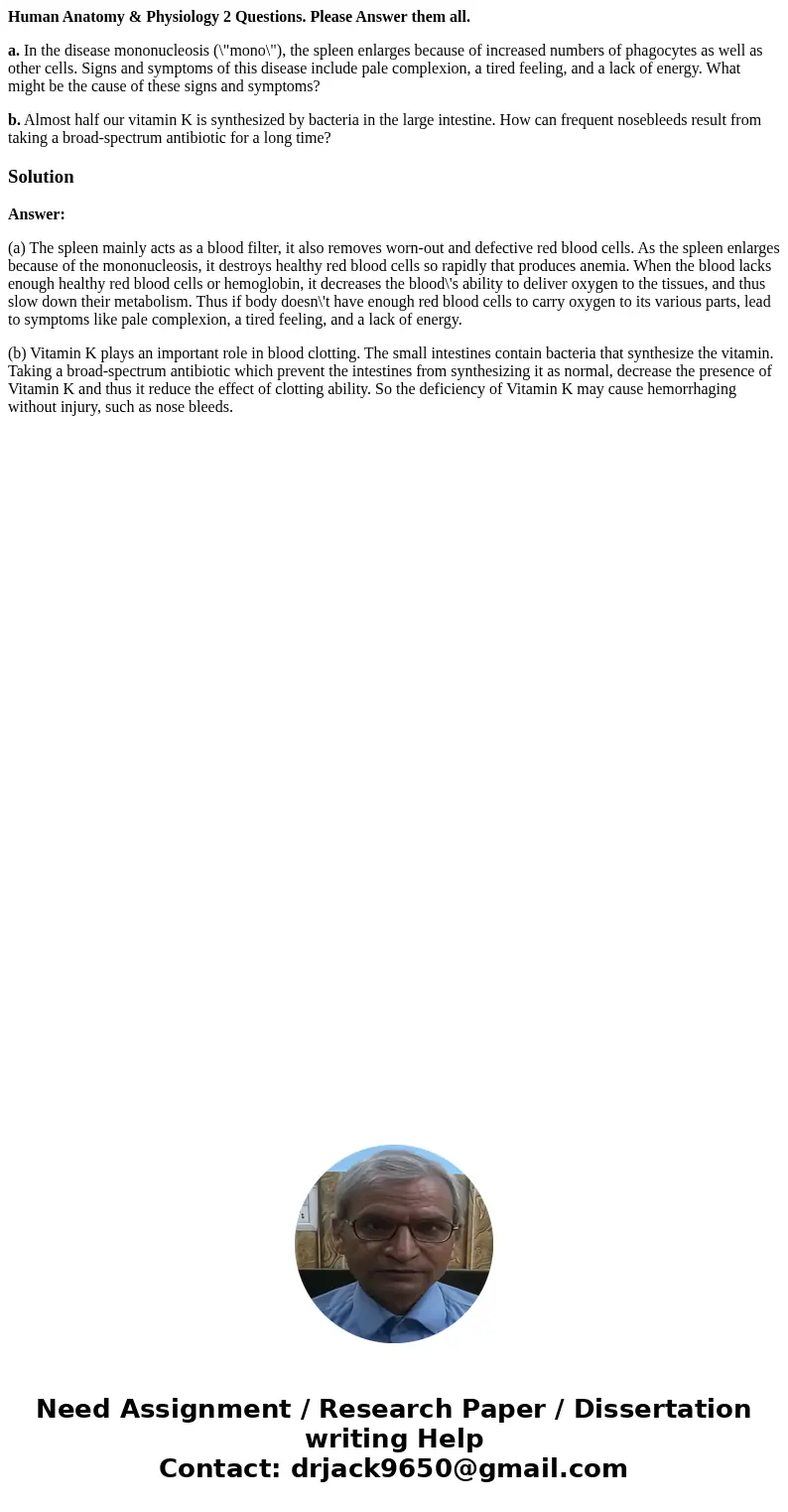Human Anatomy Physiology 2 Questions Please Answer them all
Human Anatomy & Physiology 2 Questions. Please Answer them all.
a. In the disease mononucleosis (\"mono\"), the spleen enlarges because of increased numbers of phagocytes as well as other cells. Signs and symptoms of this disease include pale complexion, a tired feeling, and a lack of energy. What might be the cause of these signs and symptoms?
b. Almost half our vitamin K is synthesized by bacteria in the large intestine. How can frequent nosebleeds result from taking a broad-spectrum antibiotic for a long time?
Solution
Answer:
(a) The spleen mainly acts as a blood filter, it also removes worn-out and defective red blood cells. As the spleen enlarges because of the mononucleosis, it destroys healthy red blood cells so rapidly that produces anemia. When the blood lacks enough healthy red blood cells or hemoglobin, it decreases the blood\'s ability to deliver oxygen to the tissues, and thus slow down their metabolism. Thus if body doesn\'t have enough red blood cells to carry oxygen to its various parts, lead to symptoms like pale complexion, a tired feeling, and a lack of energy.
(b) Vitamin K plays an important role in blood clotting. The small intestines contain bacteria that synthesize the vitamin. Taking a broad-spectrum antibiotic which prevent the intestines from synthesizing it as normal, decrease the presence of Vitamin K and thus it reduce the effect of clotting ability. So the deficiency of Vitamin K may cause hemorrhaging without injury, such as nose bleeds.

 Homework Sourse
Homework Sourse